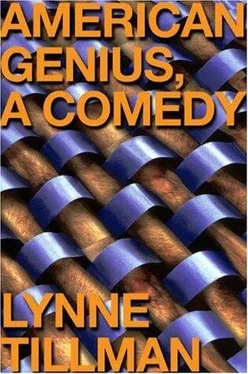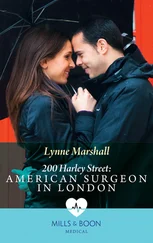The head cook labors, unfulfilled, pleasing fewer and fewer people, and it is rumored she may quit, or retire, and as she has given so many of her years to this place, her purported leavetaking, or desertion, as some residents have insisted, has upset many of the residents or fellows who are here all year and even some, like myself, who are frequent guests, because though the food is sometimes terrible, the cook's fate has implications for us all, and change is often worse. So when I enter the kitchen, I try to be calm, to modulate or moderate my ceaseless demands, because while I'm also often dissatisfied, I'm not sure it has anything to do with the food the cook prepares, to accommodate so many people, though I also have complaints and wants that go unfulfilled. Food is easy to complain about, and everyone thinks, or most believe, they have the right to complain about it, but not about money and sex, and these topics at breakfast or dinner might provoke strong adverse comment, so usually they're avoided, while response to what has been served on big, china platters is ordinarily whispered out of the cook's hearing, though some believe she hears everything, and this is why she is leaving. On occasion the forbidden topics arise, and, like farts, they leave a rank odor in the cozy dining room.
On another morning, two months before, though time is shapeless here, the gentlefaced woman, Violet, whom I secretly named Contesa, sat alone, her eyes hidden, as was her habit, by dark glasses, which she wore because, she once explained impatiently, her aging eyes were ultra-sensitive to light, perhaps it was night-blindness during the day, she kidded. She was tucked into a corner reading a tome, whose pages she'd turned back and whose many underlinings were evident even from the place I sat near the two disconsolate women and another female resident whose face and figure I can no longer remember. Somehow I recall her as a fugitive, though from what I can't remember. Contesa arose and arrived at our table, amused and vexed, as she had just read of an incident that restored to her, in detail, an event which she'd forgotten for years. Her uncle had taken her and her older sister to the country, where they had stayed in a hotel which allowed colored people-perhaps her mother, she said, was in labor again-and where the sheets on the bed she shared with her older sister were heavily starched. The movement and subsequent rubbing of the top sheet against the sensitive nipples of her prepubescent, budding breasts excited her to her first climax. While Contesa spoke, her eyes darted from side to side, returning mentally to that time, it appeared, so she didn't observe the others at the table to whom this information might have been unwanted, since a discussion of sex, in any form, or any intimacy might never be appropriate or might cause embarrassment. But hers was not a case of anomia, the nonrecognition of objects by any of the five senses, or anoia, idiocy, that might have given license to Violet, or Contesa, but rather, I thought, it was her greater age and the common, divergent femaleness we shared, and then, as part of her off-color wisdom, as she put it, she offered us a page from Ars Amandia and strolled languidly-she liked exaggeration-to her chair, where she again entered her hook without concern for her most recent effect upon us. I wondered if it was by Kafka or about Felice, though that seemed unlikely. The disconsolate woman who was not psoriatic had other complaints, she was lactose intolerant, suffered from frequent attacks of tendinitis in her left arm, asthma, and she explained that Ars Amandia was the Art of Love or of sex, and Lois, or Spike, who had read the old book, listed some methods from it to excite your partner, while I noted, silently, that Contesa was in fact wearing a starched blouse, and it could have been the sensation of the stiff linen, along with what she read, conjuring an image or even a single resonant word, matched to the feeling on her skin, which brought to the surface of consciousness the long-forgotten erotic memory. Aloud, I repeated some terms from the outdated sex manual I'd discovered in our library, to return and restore Contesa's disclosure to the texture and pattern of our daily activity and also to shift the discussion to safer topics. Apanthropia was the morbid love of solitude and an aversion to human society, while a plutomaniac was one who thought he was rich. I had known one, I said, which wasn't exactly true. Somehow all of this conversation, but especially Contesa's memory, disturbed me, since the surprising return of this sensual memory indicated the magnitude of the burial of mostly everything one has experienced, and why I held some memories, and not others, why they asserted their dominance and became my history, piqued my disquietude. Soon I left the cheerful breakfast room, to return to my bedroom for a rest.
It never occurred to me to think of my mother as sensitive, even after hearing her pain-filled screams, when I could only imagine the bloody scene, just as I imagined a mother whose animal-like cries and moans echoed in the neighborhood where I lived, when she found her threeyear-old daughter dead in bed from walking pneumonia, and afterward I didn't want to be a nurse or doctor, though I admired our family doctor's hard, black bag and read stories about nurses, especially. I learned to doctor from my mother who would have been a good one but with a poor bedside manner, since she believed truth should be served unadorned and cold, like our food here often is at lunch. Since the time I heard her screams, I have been afraid of blood, the observation of it, and any wound, and have fainted at witnessing it or from a vivid picture of it. Watching operations in movies, like the one in Bullitt, which was not sensational, but scrupulously filmed, observing the details of a celluloid operation, I fainted in my seat. When I was thirteen, a friend asked me to accompany her to her doctor's office, where, unknown to me, her blood was going to be drawn. It was a hot summer's day in the place I grew up, not far from the ocean, where our house sat on land that once was swamp, as the water is very close to the surface, lying just beneath the sandy earth, so I reflected on water often when I was a child, how it flowed magically beneath our feet, the house I loved, moving and unseen. Though I was pulled out to sea once, nearly drowned in an undertow, and swallowed gallons of salty water on another occasion, when wave upon wave knocked my eight-year-old body down and dragged it under, not letting me breathe, I loved the waves, the ocean, and, in the summer, going to the beach.
In the summer, on mysterious, sultry nights, mosquitoes viciously attacked my family and other families-I was not then concerned with other families, except that I compared mine negatively to them-though we had screens on all the windows of our comfortable house, which I loved more than anything except our cat, the ocean, later my dog, who was my present for Christmas, when I was ten. I had begged for one, our cat having been killed by my parents, after my ice-blue parakeet was decapitated by the cat, and my father had refused me a Shetland pony that could have lived in our garage, I had implored. No one, or very few, had air conditioners then. At night I'd he in bed and listen to insistent electric fans, insects hovering close to light bulbs, the thrum of the electric night, and, outside, high above, to the sound of powerful engines, jets flying low, readying to land or to fly far away. Sometimes on those long, hot nights, I could smell the ocean. My father loved the ocean, my mother feared it, and I loved summer, the ocean, and the beach.
It was during one oppressive summer, at the end of August, and I was home from camp, when fans were ineffective because only hot air was stirred, that the sight of blood caused me to faint for the first time, outside a doctor's office in my hometown, where many people of the same religion lived. I grew up among clannish people, who have nothing to do with my life now, and in the doctor's office, I stood next to an anxious friend, whose face and name I don't remember, when he drew blood from her, which I didn't watch, and then her doctor directed me to hold the vial of her drawn blood. His nurse was not around, or he did not have a nurse, and I didn't say anything, since it's often better not to say anything. I did what I was told. The doctor handed me the vial of her hot, darkred blood, even the tube was hot, like the heat of the day, and I began immediately and for the first time in my life to feel faint. The word occurred to me, though I didn't know how I knew what it was I was experiencing, or what I was going to do, and I rushed out of the doctor's office, abandoning my friend, whose name and face I don't remember, who is no longer in my life, as most of those people are not, and, once outside, under a determined, blazing sun, dropped onto the doctor's neatly mown lawn and fainted.
Читать дальше












